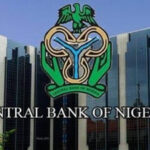Nigeria, according to Central Bank of Nigeria (CBN), recorded a foreign exchange inflow of $55.5bn in seven months.
The data obtained from the CBN shown the rise in forex inflow was attributed to increased non-oil receipts and proceeds from Eurobonds, among other factors.
According to the CBN’s economic reports, the country earned $18.3bn in the second quarter of 2021, $30.2bn in the third quarter, and $7bn in October.
Join our WhatsApp ChannelThe apex bank said foreign exchange inflow to the economy improved in the third quarter due to increased non-oil receipts.
The report read: “Foreign exchange inflow into the economy rose significantly by 65.0 per cent to $30.20bn, compared with $18.3bn in the preceding period. The development was driven by the 158.4 per cent and 13.4 per cent increased inflow through the CBN and the autonomous sources, respectively.
“Foreign exchange inflow through the bank at $16.83bn increased significantly above the $6.51bn in the preceding quarter due to additional SDR allocation and proceeds from the Eurobond sales. A disaggregation showed that non-oil receipts increased to $14.97bn, compared with the $4.60bn in the preceding quarter.
“However, receipts from oil-related sources fell by 2.7 per cent to $1.86bn, relative to the value in the second quarter of 2021. Foreign exchange inflow through autonomous sources was $13.37bn, compared with $11.79bn in the preceding period, as a result of improved inflow from invisible purchases and non-oil export receipts.”
The CBN said aggregate foreign exchange inflow into the economy was $7bn in October, compared with $13.38bn in September.
According to the apex bank, “The difference between the levels in October and the preceding month was mainly accounted for by the debt proceeds of Eurobonds, which boosted receipts in September 2021.
“However, foreign exchange outflow through the economy increased by 32.3 per cent to $4.31bn in October 2021. Outflow through the bank increased by 45.6 per cent, relative to September (mainly third-party MDA transfers and interbank sales).
“On the other hand, autonomous outflow declined by 7.2 per cent to $0.76bn, on account of the decrease in invisible imports. Consequently, the economy recorded a net inflow of $2.69bn in the review period.
















Follow Us